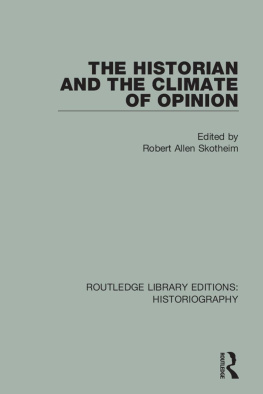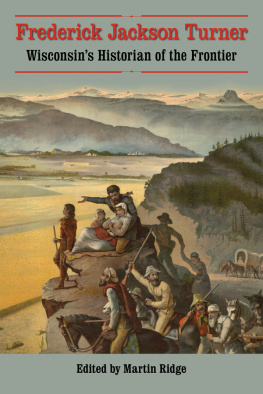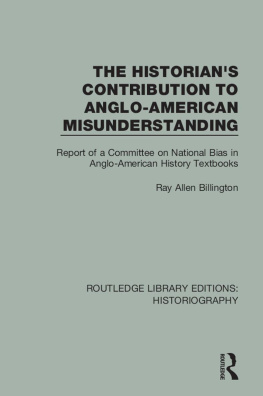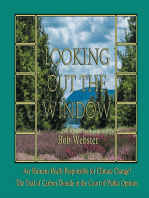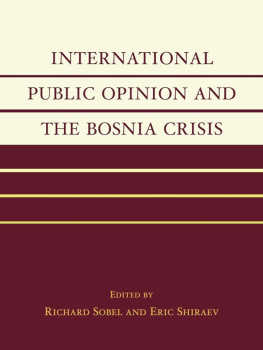ROUTLEDGE LIBRARY EDITIONS: HISTORIOGRAPHY
Volume 25
THE HISTORIAN AND THE CLIMATE OF OPINION
THE HISTORIAN AND THE CLIMATE OF OPINION
Edited by
ROBERT ALLEN SKOTHEIM
First published in 1969 by Addison-Wesley Publishing Company Inc.
This edition first published in 2016
by Routledge
2 Park Square, Milton Park, Abingdon, Oxon OX14 4RN
and by Routledge
711 Third Avenue, New York, NY 10017
Routledge is an imprint of the Taylor & Francis Group, an informa business
1969 Addison-Wesley Publishing Company Inc.
All rights reserved. No part of this book may be reprinted or reproduced or utilised in any form or by any electronic, mechanical, or other means, now known or hereafter invented, including photocopying and recording, or in any information storage or retrieval system, without permission in writing from the publishers.
Trademark notice: Product or corporate names may be trademarks or registered trademarks, and are used only for identification and explanation without intent to infringe.
British Library Cataloguing in Publication Data
A catalogue record for this book is available from the British Library
ISBN: 978-1-138-99958-9 (Set)
ISBN: 978-1-315-63745-7 (Set) (ebk)
ISBN: 978-1-138-19410-6 (Volume 25) (hbk)
ISBN: 978-1-315-63900-0 (Volume 25) (ebk)
Publishers Note
The publisher has gone to great lengths to ensure the quality of this reprint but points out that some imperfections in the original copies may be apparent.
Disclaimer
The publisher has made every effort to trace copyright holders and would welcome correspondence from those they have been unable to trace.
THE HISTORIAN AND THE CLIMATE OF OPINION
edited by
Robert Allen Skotheim
For a complete list of the titles in this series see the final pages of this volume.
Copyright 1969 by Addison-Wesley
Publishing Company Inc.
Reprinted by permission of Robert
Allen Skotheim.
Library of Congress Cataloging in Publication Data
Main entry under title:
The Historian and the climate of opinion.
(History and historiography)
Reprint. Originally published:
Reading, Mass.: Addison-Wesley, cl969. Themes and social forces in American history series)
Bibliography: p.
1. HistoriographyAddresses, essays, lectures. 2. Historians, AmericansAttitudes Addresses, essays, lectures. 3. Public opinion United StatesAddresses, essays, lectures. I. Skotheim, Robert Allen. II. Series. III. Series: Themes and social forces in American history series.
D13.H481985973.07283-49151
ISBN 0-8240-6377-5 (alk. paper)
The volumes in this series are printed
on acid-free, 250-year-life paper.
Printed in the United States of America
This collection of writings by outstanding twentieth-century American historians is dedicated to W. StullHolt. historiographer
CONTENTS
PART ONE:
HISTORIANS OF THE EARLIER 1900s
CHARLES BEARD (1934)
CHARLES AND MARY BEARD (1927)
VERNON LOUIS PARRINGTON (1927)
CHARLES CROWE (1966)
PART TWO:
HISTORIANS SINCE WORLD WAR II
LOUIS HARTZ (1955)
DANIEL BOORSTIN (1953)
RICHARD HOFSTADTER (1955)
J. ROGERS HOLLINGSWORTH (1962)
PART THREE
A DISSENTING NEO-PROGRESSIVISM IN THE 1960s: THE NEW LEFT HISTORIANS
STAUGHTON LYND (1967)
NORMAN POLLACK (1965)
IRWIN UNGER (1967)
PART FOUR
THE HISTORIAN AND THE CLIMATE OF OPINION: AN OBSTACLE OR AN OPPORTUNITY?
ALLAN BOGUE (1967)
ARTHUR SCHLESINGER, JR. (1962)
JOHN HIGHAM (1962)
The greatest problem in historical scholarship, theoretically and practically, is the relation between the historian and his subject matter. The past is gone, and the historian can study only its remnants. Although there is no way to recapture the past in entirety, the historian can reconstruct aspects of it from the remaining records and from the inferences, deductions, and guesses he can make using these records. But even though the totality of the past is lost, the records for all except remote periods of history are so numerous that the scholar cannot possibly reproduce them. Even if he could, with the help of modern technology, collect and arrange chronologically all the factual remains of the past, his efforts would be futile. The records by themselves are meaningless. They cannot speak; the historian who interprets them must speak for them. Yet the historian is finite and fallible as he confronts the infinite, immutable past.
On what basis does the scholar select certain facts from the mass of data left from the past? How does he explain the interrelationship of the facts he selects? What criteria does he use to evaluate his subject, if he does evaluate it? These are the essential questions faced by the historian.
This volume of writings by outstanding twentieth-century American historians presents one aspect of the problem which results from the conflict between the subjectivity of the historian and the objectivity of the past. The particular part of this general problem which will be examined is the relationship between the historian and the climate of opinion in which he does his work.
The concept of a climate of opinion is central to our purpose and needs to be defined, however loosely, at the outset. Climate of opinion, like other similar phrases which are sometimes used such as the spirit of an age, refers to the fundamental assumptions and attitudes shared by significant elements of a population at a given time. We may speak of the climate of opinion or the spirit of an age as a basic intellectual outlook which is shared by people in several nations over a span of centuries; such an example is the modern, rationalist, scientific spirit of western civilization since the eighteenth century. In the present case we mean to highlight recent common assumptions concerning God, nature, reason, and the possibility of mans progress through control of his environment. In this context, we may also talk of the common intellectual climate shared by hippies of the 1960s in the United States who assume that older generations have nothing to teach them and that they must find their individual identities through personal relationships. Whether a few people during a short period or millions over the centuries are involved, and whether ideas of the nature of the world or personal fulfillment are involved, our attempt to locate the climate of opinion is an attempt to describe the basic intellectual viewpoint of the group in question.
In this volume, the climate of opinion ordinarily refers to the attitudes toward society shared by most members of the educated American public during a period of three or four decades. For example, the progressive climate of the earlier twentieth century refers to the pervasive belief in mans ability to reform society. By contrast, the years following World War II brought an intellectual temper which was more pessimistic about the possibility of significantly improving the human condition, and which instead emphasized the value of traditional American society. A single intellectual climate does not necessarily, of course, envelop every group or individual in a society at any particular time, and often there are competing basic outlooks. For instance, in the United States during the 1960s a minority dissent from the prevailing post-war mood has emerged in the young people born during and after the Great Depression. This dissenting frame of mind, with its critical stance toward the American status quo and its demand for social reform, is described in this volume as a return to the earlier progressivism.

